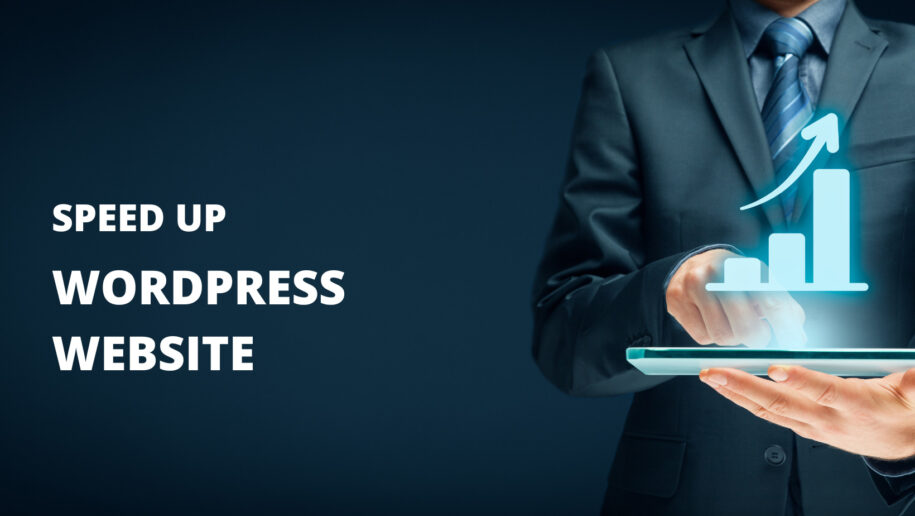A slow-loading website can be detrimental to user experience, search engine rankings, and overall business success. This article delves into the best practices and techniques to Speed up WordPress website, enhancing its performance and user satisfaction.
Evaluating Your Website’s Current Performance and Speed Up WordPress Website
Before implementing speed optimization techniques, it’s essential to assess your website’s current performance. Use online tools like GTmetrix or Google PageSpeed Insights to analyze your website’s speed and identify areas for improvement.
Minimize Page Load Time
Reducing the time it takes for your website pages to load is crucial for a smooth user experience. Here’s how you can accomplish this:
- Optimize Images: Compress images without compromising quality using tools like TinyPNG or WP Smush to reduce their file sizes.
- Enable Caching: Install a caching plugin like WP Rocket or W3 Total Cache to generate static HTML versions of your web pages, reducing server load and load times.
- Minify CSS and JavaScript: Use plugins like Autoptimize or WP Super Minify to remove unnecessary spaces, line breaks, and comments from your CSS and JavaScript files, reducing their size.
Choose a Lightweight Theme
The theme you choose for your WordPress website can significantly impact its speed. Opt for a lightweight, well-coded theme that prioritizes performance over excessive features and customization options.
- Avoid Bloated Themes: Choose a theme that doesn’t come with an excess of preloaded features, as they can slow down your website.
- Check for Mobile Responsiveness: Ensure the theme is mobile-friendly and optimized for various devices, as mobile optimization is crucial for website speed.
Optimize Plugins
While plugins can enhance your website’s functionality, an excessive number of them can slow it down. Here are some tips for optimizing plugins:
- Audit Your Plugins: Regularly review and deactivate or delete unnecessary plugins. Consider alternative solutions or find plugins that combine multiple functionalities into one.
- Update Regularly: Keep all your plugins updated to ensure they are compatible with the latest WordPress version and optimized for speed and security.
- Utilize Plugin Performance Tools: Plugins like Query Monitor or P3 (Plugin Performance Profiler) can help identify plugins that are causing performance issues, allowing you to make informed decisions.
How to Increase WordPress Website Speed Using an Efficient Page Builder
One integral, yet often overlooked, strategy to increase your WordPress website’s speed is the careful selection and utilization of an efficient page builder.
Page builders are indispensable tools in modern web design, allowing you to construct and personalize your website without needing deep knowledge of code. However, it’s important to remember that not all page builders are created equal; some can inadvertently slow down your website due to inefficient coding practices or bloated features.
Here’s how to optimize your use of a page builder to increase your WordPress website’s speed:
- Choose a High-Quality Page Builder: Look for page builders renowned for their efficient and clean code output. Some highly-rated options include Elementor and Beaver Builder. Their reputation for speed and efficiency makes them excellent choices.
- Avoid Unnecessary Features: Many page builders come loaded with numerous widgets and features. Although tempting to use, these can slow your website down if they’re not necessary. Only deploy features that directly contribute to your website’s functionality or user experience.
- Simplify Your Layouts: While page builders can create complex layouts with deeply nested elements, remember that each additional element can potentially slow down your page. Therefore, simpler, cleaner layouts often lead to quicker loading times.
- Update Regularly: Like any software, page builders receive updates that fix bugs, add features, and enhance performance. Keeping your page builder up-to-date ensures that you benefit from these improvements, potentially increasing your website’s speed.
- Test Your Pages: After creating a page, use speed testing tools like Google PageSpeed Insights or GTmetrix to analyze its load time. If the results are unsatisfactory, consider reworking your layout or removing unnecessary features.
By leveraging a high-quality page builder efficiently, you can enhance the speed and overall performance of your WordPress website. This speed increase not only aids in better search engine rankings but also significantly improves the user experience.
Implement Content Delivery Networks (CDNs)
Content Delivery Networks distribute your website’s static content (images, CSS, JavaScript) across multiple servers worldwide, reducing the distance between the user and the server. This results in faster load times. Consider the following:
- Choose a Reliable CDN Provider: Popular CDN providers include Cloudflare, StackPath, or KeyCDN. Research their features, pricing, and integration options to find the one that best suits your needs.
- Enable CDN Integration: Install and configure a CDN plugin like WP Rocket or W3 Total Cache to seamlessly integrate your WordPress website with the CDN provider.
Optimize Database and Code
Optimizing your WordPress database and cleaning up your website’s code can have a significant impact on speed. Consider the following steps:
- Database Optimization: Use plugins like WP-Optimize or WP-Sweep to remove unnecessary data, optimize database tables, and reduce the size of your database.
- Code Optimization: Minimize inline CSS and JavaScript, remove unnecessary code or comments, and leverage browser caching to reduce server requests.
Leverage Browser Caching
Enabling browser caching allows returning visitors to load your website faster by storing static resources locally. To implement browser caching:
- Modify .htaccess File: Add caching rules to your website’s .htaccess file to control how long browsers cache different types of files.
- Use Caching Plugins: Plugins like WP Rocket, W3 Total Cache, or WP Super Cache simplify the process of enabling browser caching for non-technical users.
Regularly Update WordPress and Themes
Keeping your WordPress core, themes, and plugins up to date is crucial for website security and performance. Updates often include performance optimizations, bug fixes, and compatibility improvements.
- Enable Automatic Updates: Enable automatic updates for your WordPress core, themes, and plugins whenever possible to ensure you’re running the latest versions.
Conclusion: Speed Up WordPress Website
A fast-loading WordPress website improves user experience, boosts search engine rankings, and increases customer satisfaction. By implementing the strategies discussed above, such as optimizing images, choosing a lightweight theme, minimizing plugin usage, and leveraging caching and CDNs, you can significantly speed up your WordPress website. Regularly evaluate your website’s performance, implement best practices, and keep your website up to date to ensure optimal speed and performance for your visitors.
Boost your WordPress website’s performance. Speed up your site with professional WordPress page speed optimization services. Enhance user experience and improve your search engine rankings. Optimize your WordPress website today for lightning-fast loading times.


